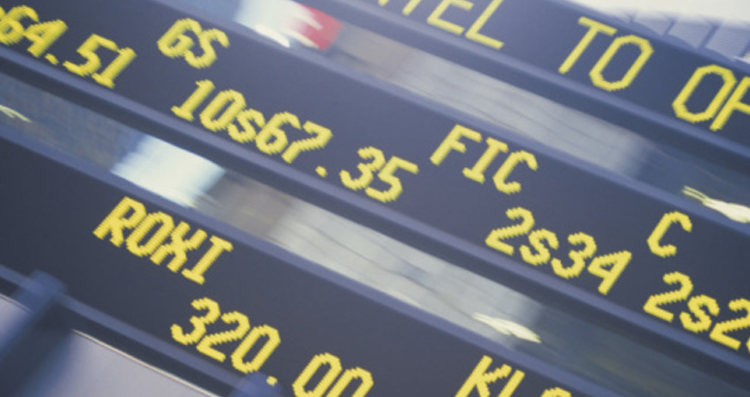Bunzl's first quarter underlying organic revenue dropped 5.4%, in line with expectations. This was driven by volume dips in the US food service and retail businesses, with lower prices also having an impact. Acquisitions added growth of 2.9%, ignoring currency impacts.
Operating margin was “strong” and full-year guidance is unchanged. The group expects to deliver “slight revenue growth” in 2024, driven by acquisitions, with underlying revenue dipping a touch. Operating margin is expected to be slightly below the record level seen last year.
The shares rose 1.0% in early trading.
Our view
Markets had already been warned that first-quarter trading was a little weak, hence the lack of price reaction. That said, the upbeat tone of management's outlook comments is a source of optimism, and the news that margins are doing well is welcome.
Bunzl's a mashup of around 150 distribution businesses, which source and deliver a range of essential products. There's nothing fancy about the products on offer, think food packaging and safety equipment. But that's what we like about the product range, these are things customers can't go without. Overall, we retain the view that Bunzl's an attractive business, but there are some things to monitor.
Recent organic performance has been a struggle. Falling inflation is pulling sales down and normalising sales from Covid related products across geographies are a drag. The latter should normalise as we move through 2024 and comparable periods ease, but it’s pricing where see headwinds persisting.
Aside from organic growth, it's acquisitions that take centre stage. Over the past 20 years, they’ve accounted for around two-thirds of the impressive 9% compounded annualised growth rate in revenue. It’s a highly fragmented market so there’s plenty of opportunity to snap up businesses with attractive margins at decent prices.
The Nisbet deal (a distributor of catering equipment and consumables) was bigger than we’re used to seeing. At £339mn on its own, that’s already 72% of the total spend on 19 acquisitions in 2023. Initial details point to a slight premium paid compared to the usual sweet spot, but it’s expected to be a meaningful benefit to earnings in its first full year post-completion.
Acquisition-led strategies have drawbacks. If the pool of target companies dries up or a business needs to raise external cash to fund acquisitions, then it's not usually sustainable. Bunzl's got this covered with a highly cash-generative business model and a strong balance sheet with plenty of room to tap debt markets if needed.
We've been genuinely impressed by Bunzl's margin performance and remain supportive of the resilient portfolio and highly cash-generative model. In the short term, we're mindful that organic weakness puts a lot of pressure on acquisitions to do the hard work. Expect to see some further top-line declines before things stabilise.
Bunzl key facts
All ratios are sourced from Refinitiv, based on previous day’s closing values. Please remember yields are variable and not a reliable indicator of future income. Keep in mind key figures shouldn’t be looked at on their own – it’s important to understand the big picture.
This article is not advice or a recommendation to buy, sell or hold any investment.No view is given on the present or future value or price of any investment, and investors should form their own view on any proposed investment.This article has not been prepared in accordance with legal requirements designed to promote the independence of investment research and is considered a marketing communication.Non - independent research is not subject to FCA rules prohibiting dealing ahead of research, however HL has put controls in place(including dealing restrictions, physical and information barriers) to manage potential conflicts of interest presented by such dealing.Please see our full non - independent research disclosure for more information.








